MercoPress. South Atlantic News Agency
Tag: World Bank
-
Tuesday, November 13th 2018 - 10:42 UTC
Bolsonaro's economic team incorporates another Chicago orthodox liberal
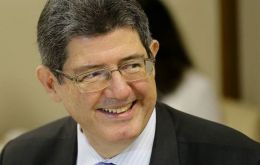
Joaquim Levy, managing director and World Bank chief financial officer, has been tapped to be the next president of Brazil’s national economic and social development bank BNDES, news advanced to a column in daily O Estado de S. Paulo published on Sunday.
-
Friday, November 9th 2018 - 09:09 UTC
Bolsonaro vows to investigate Americas largest development bank, Brazil's BNDES
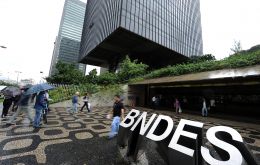
Right-wing President-elect Jair Bolsonaro vowed in a tweet on Thursday to investigate Brazil’s state-run national development bank, BNDES, for corruption by opening its “black box” of secret transactions. BNDES is the largest development lender in the Americas with a loan book larger than the World Bank’s.
-
Friday, November 2nd 2018 - 09:03 UTC
Multilateral banks provide Argentina three loans totaling US$ 1.8 billion
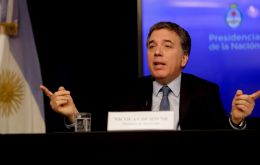
The World Bank and the Inter-American Development Bank are providing Argentina with three loans totaling more than US$1.8 billion, aiming to help the country cope with financial difficulties and support citizens most at risk.
-
Tuesday, October 16th 2018 - 08:38 UTC
Paulo Guedes the ultra-liberal economic advisor of an ultra-populist nationalist
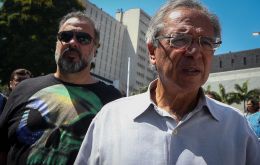
After getting out of its most severe recession in history in 2017, Brazil remains in a state of economic malaise, notching up a mere 1% of growth last year, with public debt forecast to snowball from 77% of GDP to 140% by 2030, according to the World Bank.
-
Thursday, October 11th 2018 - 08:31 UTC
World Bank unveils “Human Capital Index”: Singapore, South Korea, Japan and Hong Kong top of the list

The World Bank Group unveiled a new system on Thursday to rank countries based on their success in developing human capital, an effort to prod governments to invest more effectively in education and healthcare.
-
Monday, October 1st 2018 - 08:14 UTC
Daunting Brazil challenges for whoever is elected president this month

Whoever wins Brazil’s presidential election on October 7, and the runoff on October 28, will have to convince markets, implement austerity measures while trying to drag millions people out of poverty.
-
Wednesday, June 6th 2018 - 08:45 UTC
China and Argentina reinforce financial links with increased currency swap arrangement
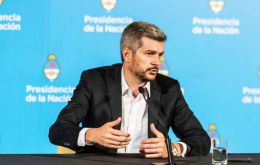
Argentina is looking to expand an existing currency swap arrangement with China, as Buenos Aires looks to stabilize the economy one month after applying for financial aid from the International Monetary Fund. In an interview with the Financial Times, Argentina’s Chief of Cabinet Marcos Peña, said “we have an active swap with China that the previous government left us and we will try to make it bigger.”
-
Thursday, May 10th 2018 - 08:20 UTC
Argentine congress passed capital market reform bill; Merval up 6%
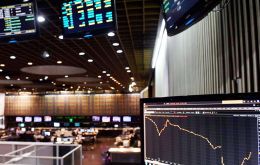
The Argentine Congress passed the government's capital markets reform bill on Wednesday, seeking to boost a troubled economy by reducing the power of market regulators and loosening restrictions on some funds investing in Argentina. Investors and economists consider the reform bill key to President Mauricio Macri's effort to boost investment in the country, whose capital markets are far smaller than regional peers.
-
Friday, March 30th 2018 - 07:04 UTC
The Economist: Uruguay less dependent on Argentina, Brazil

The British publication The Economist praised Uruguay's progress and underlined its decreasing dependency from giant neighbours Brazil and Argentina.
-
Monday, February 12th 2018 - 13:18 UTC
Climate change is increasingly notorious and alarming

The global climate perspective is darkened by a climate change that has accelerated in recent years and is becoming increasingly difficult to reverse. The ambitious temperature limits established in the Paris agreement are about to be overcome. Among its consequences, it is revealed that at least 26 million people will be dragged into poverty annually due to climatic causes and the retreat of the ice in the poles and mountain glaciers accelerates exponentially.
